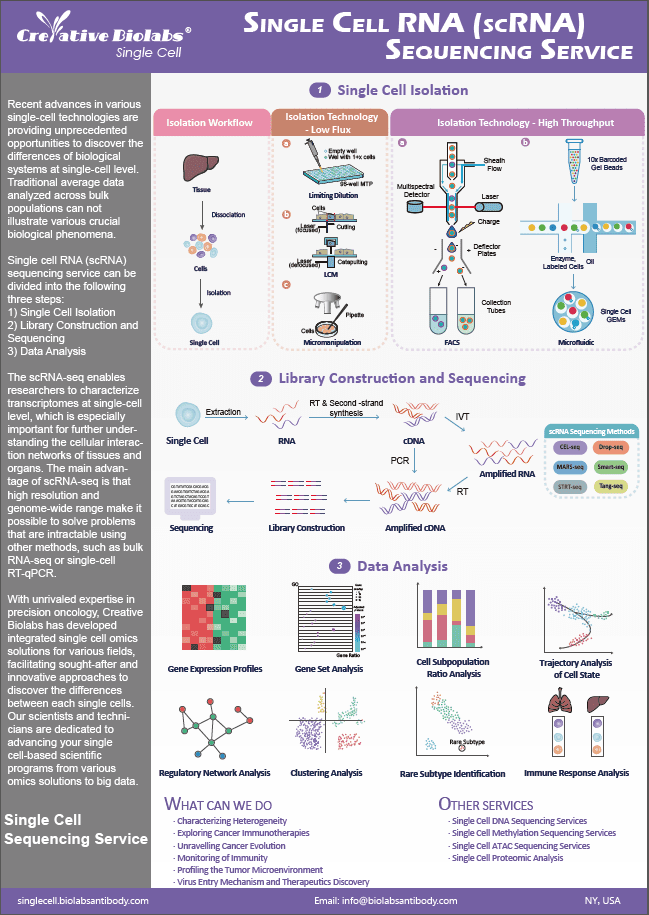DNA Microarray Services
A DNA microarray is a multiplex genomics technique that generates genotyping data on a genome-wide scale by hybridizing nucleic acids to microarrays to target and quantify specific genes.
DNA Microarray
DNA microarrays consist of tiny DNA patches adhered to a solid surface. Scientists utilize DNA microarrays to simultaneously evaluate the expression levels of a large number of genes or to genotype numerous genomic regions. Each DNA patch comprises probes, which are picomoles of a specific DNA sequence. A small segment of a gene or other DNA fragment is used to hybridize a cDNA sample under extremely stringent conditions. Typically, probe-target hybridization is detected and quantified by detecting fluorophore-, silver-, or chemiluminescence-labeled targets in order to measure the relative quantity of nucleic acid sequences in the target.
Applications of DNA Microarray
DNA Methylation arrays enable quantitative interrogation of specific methylation sites across the genome, with high-throughput capabilities. This advanced process enables research teams to examine gene expression and quantify disease-related mutations caused by cancer and other illnesses.
Using DNA microarrays, it is possible to identify single nucleotide polymorphisms (SNPs) and copy number variations (CNVs) throughout the entire genome. The development of more accurate disease detection methods and diagnoses, individualized treatment planning, and polygenic risk scoring (PRS) for epidemiology are examples of applications.
DNA Microarray Service
-
Genotyping Array Service
Genotyping array is a powerful tool to detect common SNPs, CNVs, and other genetic variations. -
DNA Methylation Array Service
DNA Methylation arrays provide quantitative querying of specific methylation sites in the genome, allowing for high-throughput capabilities at a low cost per sample.
Genotyping array service
The genotyping array services provided by Creative Biolabs enable researchers to conduct genome-wide and phenotype-wide association studies. Our genotyping array service provides superior data quality and dense genome coverage for detecting CNVs and SNPs.
Our genotyping array service provides researchers with the flexibility to genotype samples containing hundreds of thousands to millions of markers and genome-wide coverage with the most recent content.
DNA methylation array service
Creative Biolabs offers mainstream DNA methylation microarrays and comprehensive array-based DNA methylation testing tools.
Our service covers the complete process, from quality control of the samples to final data analysis. Besides, we can also help customize microarrays which can be tailored to meet specific project requirements.
Creative Biolabs provides a wide range of DNA microarray services for applied research in genetic diseases and cancer, including genotyping arrays and methylation array services. Our DNA microarray services can assist in identifying variants and epigenetic alterations that contribute to disease and phenotype in a cost-effective and timely manner. For more information, please contact us.
Features & Benefits
-
High-throughput Capacity
Our DNA microarray services utilize platforms capable of processing up to 5 million markers per sample. This high capacity enables comprehensive genomic coverage and deep insight into genetic variations. -
Rapid Turnaround Times
Leveraging automated systems and streamlined processes, we offer quick turnaround times without compromising the quality of data, accelerating the pace of genetic research and development. -
Extensive Experience
With a proven track record and expertise in genomic services, our team provides reliable and accurate microarray analyses, supporting a wide range of research applications from basic research to clinical diagnostics. -
High Precision and Reproducibility
DNA microarrays offer high precision and reproducibility, which are critical for clinical research and therapeutic development, ensuring that the results are reliable and can be replicated. -
Expert Data Interpretation
Our team of experts provides in-depth data interpretation and consultation, helping you to understand complex genetic data and its implications for drug development and disease treatment strategies.
Q&As
Q: What kind of samples can be analyzed using DNA microarray services?
A: DNA microarray services can analyze a variety of sample types including blood, tissue, and even challenging samples like formalin-fixed paraffin-embedded (FFPE) tissues. Advanced protocols allow for the analysis of partially degraded samples from archival tissues.
Q: Can DNA microarray services handle small sample sizes?
A: Yes, advanced DNA microarray platforms can process small quantities of DNA, starting from as little as 80 nanograms per sample. This capability is especially important for studies using limited or precious samples, such as clinical biopsies or rare tissue samples.
Q: Can DNA microarray technology detect microbial infections?
A: Yes, DNA microarrays can be used to detect and identify microbial infections by profiling pathogen-specific genetic sequences. This capability is crucial in clinical microbiology for diagnosing infections, understanding pathogen resistance mechanisms, and monitoring outbreaks.
Q: How quickly can DNA microarray results be obtained?
A: The turnaround time for DNA microarray results can vary but is typically a few days to a week, depending on the complexity of the sample and the extent of analysis required. Automation and advancements in microarray technology have significantly reduced processing times.
Q: How does DNA microarray technology contribute to personalized medicine?
A: DNA microarray technology plays a pivotal role in personalized medicine by allowing the analysis of patient-specific genetic profiles. This information can be used to tailor medical treatments based on individual genetic predispositions and responses to drugs, thereby enhancing treatment efficacy and safety.
Resources
Search...


